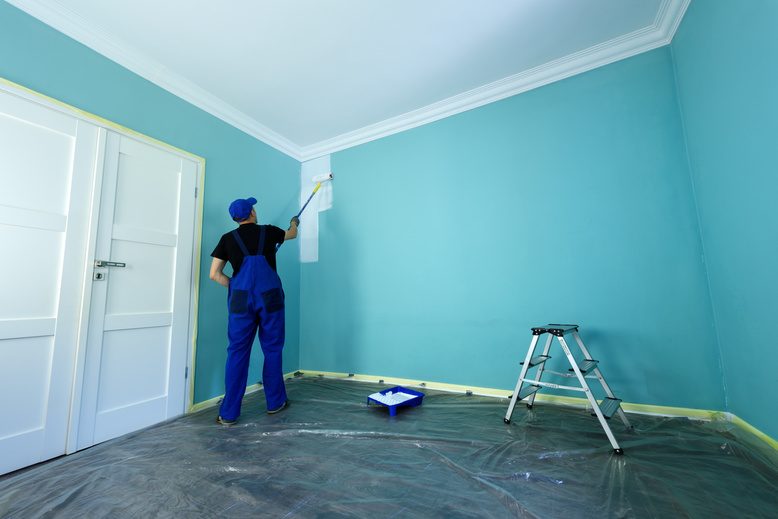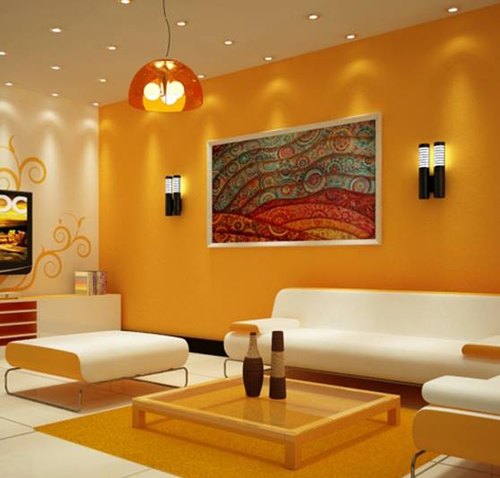Get the Best Cleveland Metro Painting Specialists for Flawless Interior Painting
Get the Best Cleveland Metro Painting Specialists for Flawless Interior Painting
Blog Article
Enhance Your Interior Design With Comprehensive Color Appointment
The integration of color examination right into interior decoration presents a special possibility to improve and elevate the aesthetic and emotional vibration of an area. By involving with a skilled shade consultant, you can navigate the complexities of color choice, making certain that your choices not only complement architectural features but also resonate with personal style and psychological impact. This tactical partnership can considerably influence the overall atmosphere of your environment, fostering a sense of harmony and objective. Recognizing the nuances of this process is important-- what key aspects should be taken into consideration to attain ideal results?
Benefits of Shade Examination

Moreover, color assessment help in making best use of natural light and optimizing spatial understanding. Lighter colors can make an area show up even more large, while darker tones create an intimate setting. Cleveland Metro Painting Specialists. This tactical application of color can considerably influence the general atmosphere of any kind of interior area
Furthermore, professional specialists have an extensive understanding of present patterns and ageless classics, guaranteeing that the chosen colors will remain enticing over time. This insight can conserve customers from expensive redesigns in the future. Color assessment empowers customers by supplying them with a clear vision and direction, fostering self-confidence in their style choices and inevitably leading to a much more effective and satisfying indoor style outcome.
Recognizing Color Psychology
The significance of shade psychology in interior layout can not be overemphasized, as it delves right into the mental and emotional impacts that various tones can evoke in individuals. Colors can affect mood, behavior, and even productivity, making them an essential consideration in any kind of style task.
As an example, cozy colors such as red, orange, and yellow are usually connected with power and warmth. They can boost feelings of exhilaration and convenience, making them appropriate for social spaces like living rooms or cooking areas. Alternatively, amazing colors like blue, environment-friendly, and purple have a tendency to evoke calmness and serenity, making them perfect for rooms or reflection areas.
Furthermore, the usage of neutral tones can produce a balanced setting by allowing the bolder colors to attract attention without overwhelming the senses. Comprehending these mental influences allows developers to develop rooms that not only look visually pleasing but additionally advertise psychological health.
Including shade psychology right into interior decoration entails a thoughtful selection of colors customized to the intended function of each space, inevitably boosting the total experience for its passengers. This understanding is important for achieving a functional and unified interior setting.
The Color Wheel Described
Understanding the connections in between tones is important for effective interior decoration, and the color wheel works as a useful tool in this process. The color wheel, created by Isaac Newton in the 17th century, shows the range of shades set up in a round layout. It makes up primary colors-- red, blue, and yellow-- that can not be developed by blending various other colors. Additional colors, created by incorporating primaries, consist of green, orange, and purple. Tertiary shades arise from mixing a key and a secondary shade, leading to hues such as red-orange and blue-green.
The shade wheel assists designers grasp the partnerships between colors, including corresponding, comparable, and triadic schemes. Corresponding colors, located opposite each various other on the wheel, produce vibrant contrasts that can invigorate a space. Similar colors, situated alongside one an additional, supply a harmonious and natural look. Triadic plans use 3 evenly spaced colors, offering equilibrium and aesthetic rate of interest.
Making use of the color wheel in interior decoration not only improves visual appeal however additionally evokes certain feelings and atmospheres, making it a crucial recommendation for shade consultation. Comprehending these partnerships ultimately equips developers to develop spaces that are both functional and visually exciting.
Selecting the Right Combination
A well-chosen color scheme can unify a room, boost its attributes, and stimulate wanted feelings. Various rooms offer different functions and require palettes that mirror their desired usage; for circumstances, peaceful colors such as soft blues or greens function well in rooms, promoting relaxation.
Light can considerably change just how colors appear, so it is crucial to examine the room at various times of the day. A harmonious scheme must complement these functions, creating a natural look throughout the room.
When choosing shades, utilize the 60-30-10 regulation, which suggests that 60% of the room ought to be try this out a leading color, 30% a second color, and 10% an accent shade. This ratio makes certain balance and visual passion (Cleveland Metro Painting Specialists). Full Article Sample colors on the wall surfaces prior to committing, as this enables you to see how the shades connect with one another and the general setting they create in your interior style task.
Collaborating With a Color Expert

When collaborating with a color specialist, the process usually begins with a preliminary examination. During this meeting, you'll discuss your vision, preferences, and the existing elements in your room. The professional will certainly examine your requirements and might advise particular shade schemes that line up with your goals.
After establishing an instructions, the consultant will provide examples and aesthetic help to help you envision the proposed shade plans. This step is essential, as colors can show up in different ways under differing illumination conditions.
In addition, a color specialist can guide you in picking complementary furnishings, art work, and accessories to harmonize with your picked combination. By collaborating very closely, visit our website you can accomplish a refined visual that elevates your insides and produces an inviting environment. Ultimately, the proficiency of a shade specialist can substantially improve the general effect of your layout task.
Verdict
In summary, thorough color assessment offers as an essential tool for improving indoor design. By leveraging specialist knowledge of color psychology and spatial dynamics, a customized shade scheme can be created to stimulate specific emotions and produce an unified setting.
By involving with a skilled shade consultant, you can navigate the complexities of color choice, making sure that your options not just enhance building attributes yet additionally reverberate with individual design and emotional influence. It consists of primary colors-- red, blue, and yellow-- that can not be produced by mixing other colors.The color wheel helps designers grasp the relationships between shades, consisting of corresponding, similar, and triadic systems.When choosing colors, use the 60-30-10 guideline, which suggests that 60% of the space should be a leading shade, 30% an additional color, and 10% an accent color. By leveraging expert expertise of shade psychology and spatial characteristics, a tailored color scheme can be created to stimulate particular emotions and create an unified atmosphere.
Report this page